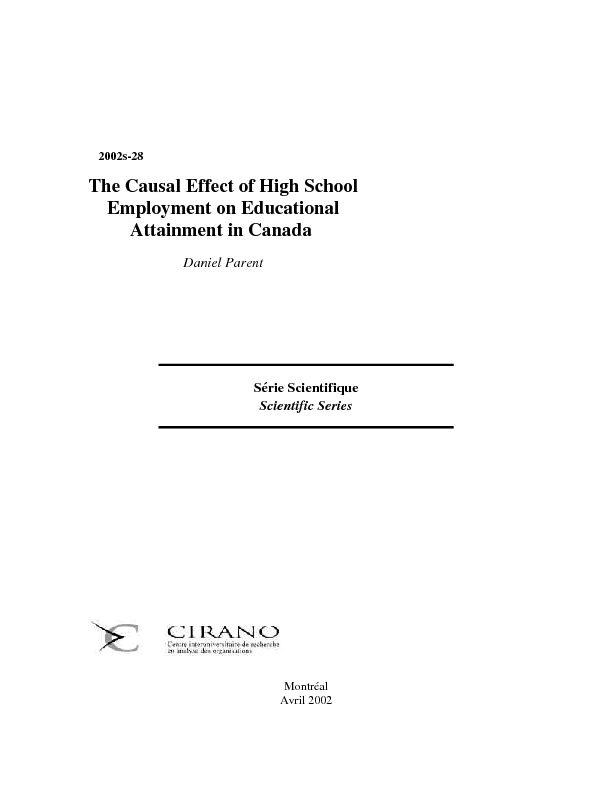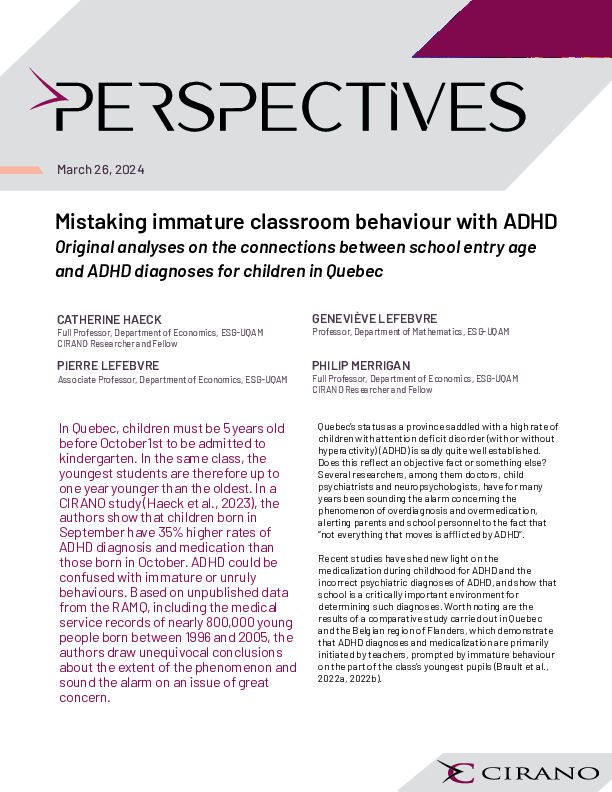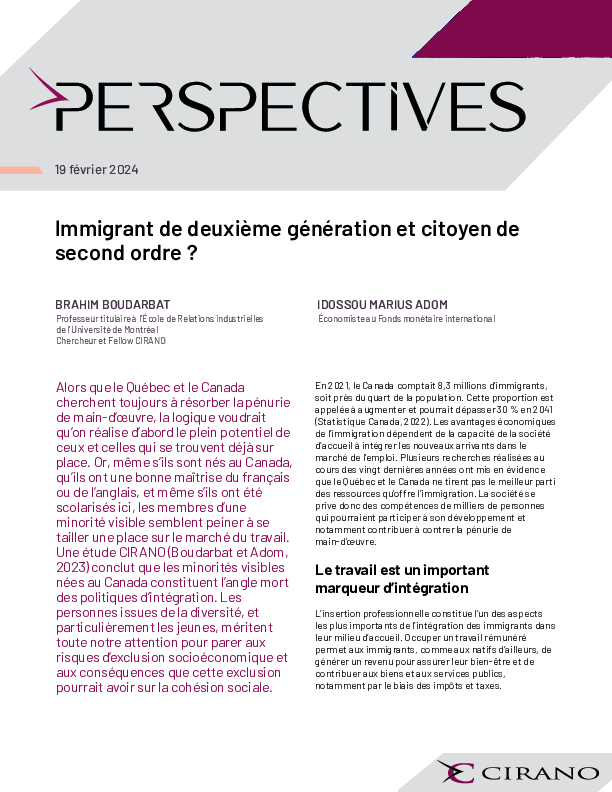The Causal Effect of High School Employment on Educational Attainment in Canada
The objective of this paper is to assess the impact of working in the twelve months preceding the date of leaving high school, either as a graduate or as a dropout, on the probability of graduation. To do so, I use Statistics Canada's 1991 School Leavers Survey and its 1995 Follow-up. Given that both the decision to graduate and the decision to work are endogenous variables, I use local labor market conditions as an exclusion restriction to study the sensitivity of the results to different estimation techniques in a system of endogenous limited-dependent/qualitative variables. While all estimation methods lead to roughly the same qualitative conclusion, relaxing some of the underlying distributional assumptions in favor of semi-parametric (or less restrictive) methods generally leads to larger impacts than what I get with full maximum likelihood techniques. In conclusion, while previous work using U.S. data points towards somewhat ambiguous effects, the results here show a strong negative effect of working while in school on the probability of graduation, especially for men. This negative effect shows up both when I use a dummy for work activity while in school or when I use hours worked directly.
[ - ]




